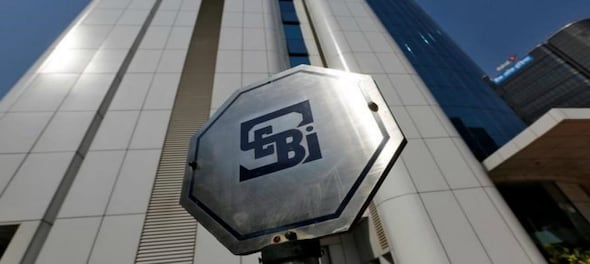The capital markets regulator Sebi on Thursday approved a new framework for issuance of differential voting right (DVR) shares from July and tightened norms for mutual funds and promoters pledge.
Read here:
Taking a serious note of some mutual fund houses' exposure to loan against share schemes, Sebi tightened the norms for disclosing the details of pledged shares by promoters. Loan against share schemes involves debt mutual funds investing in debt papers of little-known/lower-rated companies on the backing of promoter shares.
Risk Management For Mutual Funds
Liquid funds to hold a minimum of 20 percent of assets in cash, G-Secs, T-bills, repo.
Sectoral limit cap to be reduced to 20 percent from 25 percent.
Housing finance company (HFC) exposure of 15 percent restructured to 10 percent to HFC + 5 percent in securitised debt on retail/affordable housing.
Valuation to be on MTM (mark to market) basis only, amortisation based valuation scrapped.
Liquid funds cannot invest in deposits or instruments with credit enhancement.
Graded exit load to be levied on investor exiting the scheme in up to 7 days.
Schemes will only invest in listed non-convertible debentures (NCDs). To be implemented in a phased manner. Schemes to henceforth invest only in listed commercial papers.
All fresh investments in equity to be only in listed or to be listed shares.
Investments in credit enhanced instruments capped at 10 percent and at 5 percent of a particular group.
There should be adequate security cover of at least 4x in credit enhanced instruments linked to equities.
Various proposals to streamline valuations of securities were approved.
Proposals address valuation for inter-scheme transfers and disallow the use of own trades for valuation.Disclosure of Encumbrances
Scope of encumbrance disclosures expanded. Encumbrance now includes any restriction on the free and marketable title of shares.
Encumbrance to apply irrespective of whether the restriction is executed directly or indirectly.
Encumbrance to include pledge, lien, negative lien, non-disposal undertaking.
Encumbrance to include any covenant, transaction, condition or arrangement by whatever name.
Promoters to disclose reasons for encumbrance when promoter + PAC exceeds 20 percent of total equity capital.
Promoters to disclose reasons for encumbrance when promoter + PAC exceeds 50 percent of their shareholding.
Promoters to give an annual undertaking to the audit committee and SEs on no encumbrances beyond disclosures.Materiality of Royalty Payment
The threshold for royalty to be considered material revised to 5% from 2% of consolidated revenue.
The revision follows representations by industry.
Material royalty payments will require to be passed by the majority of minority shareholders.Listing of Companies With Superior Voting Rights (SVR)
The company with superior voting rights shares can float Initial public offering (IPO) of ordinary shares.
Company will be eligible if it is in the technology/biotech business.
SVR shareholder must be part of the promoter group whose net worth is not > Rs 500 crore.
Computation of net worth will exclude SVR in issuer company.
SVRs should be issued only to those promoters who hold an executive position.
Issue of SVR should have been approved by a special resolution.
SVR shares should have been held for a minimum of 6 months prior to the filing of red herring prospectus (RHP) for IPO.
SVR shares can have voting rights ranging from 2:1 to 10:1.
SVR shares to be under locked-in till conversion into ordinary shares.
Transfer of SVRs within promoters or any lien on them not permitted.
Companies with SVR to be subject to higher corporate governance conditions.
SVRs to have only one vote like ordinary shares on independent director/auditor appointments.
SVRs to have only one vote like ordinary shares in case of promoter transferring control.
SVRs to have only one vote like ordinary shares on related party transactions.
SVRs to have only one vote like ordinary shares on the decision for winding up of the company.



